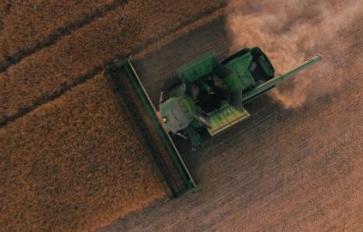
Eggs - they are simple, nutritious and come in their own natural shipping container.
So how did they become so complicated?
All natural, free-range, humanely raised, pasture-raised - it is confusing! If you are not able to raise your own hens, then how do you buy the best eggs? Sometimes you stare at the choices so long you just decide to go with the least expensive carton and move on.
Let's take a look at what those labels really mean:
Regular Grade: These eggs are “commercially raised,” which means they are probably stacked in cages to do their business. And it is a business. The more laying hens in a space, the greater potential for profit. Sunlight, scratching in tall grass, humans calling out “chick-chick” – not happening. They are under a considerable amount of stress for a little bird. It could also be assumed that antibiotics are used to prevent the outbreak of disease.
Cage-Free: This means that the hens are not raised in cages. The hens could be living in large barns or arenas, where they are able to move about and scratch in the litter. It is not guaranteed, however, that they have a chance to go outside and wander.
Free Range: These hens may live in the same conditions as their cage-free sisters, but they have some access to the outdoors. They may or may not be able to scratch in the grass, or have a designated number of hens per square foot of space. The USDA’s definition for “Free Range” is that birds must have “outdoor access” or “access to the outdoors.” In truth, this could mean that the hens only have a window that allows them to stick their heads outside.
Enriched: This label has nothing to do with whether the hens are running free in a grassy field or living in a wire cage. Enriched eggs are those laid by hens that have been fed with enriched chicken food – Omega-3 is a trendy additive right now. The amount of Omega-3 that is passed on to you is still up for debate.
Organic: Eggs that are certified organic have been fed with organic feed that is free from antibiotics or hormones. Organic hens do not necessarily spend time outdoors in pastures – but the possibility is higher than with commercial egg-laying facilities. If the label reads “vegetarian fed,” it does not mean they are being fed vegetarians. In fact, it is a big plus for vegetarians. The hens are given a no-meat, vegetable-based feed, but that also means they are not allowed to eat insects and other tidbits they could find in a pasture. Chickens are naturally omnivorous, not herbivorous.
Pasture-Raised: This is probably what would happen if you were able to keep your own hens. These lucky little birds are allowed to kick up their heels (if they have heels) in green pastures. They are not given antibiotics or hormones, they can scratch about and eat worms if they want to do so, and they can take baths - in the dust or in the sunlight. Their eggs generally tend to have a meatier flavor, brighter yellow yolk, and a higher nutritional value than commercially-raised eggs. Oh, and the price will be considerably higher.
Certified Humane Raised and Handled®: This label identifies facilities that have met standards set by Humane Farm Animal Care (HFAC), an international nonprofit certification organization dedicated to improving the lives of farm animals in food production from birth through slaughter.
If you are wondering, white eggs are just as good as brown eggs if the hens are given the same living and nutritional conditions. The shell color is a matter of genetics, not protein-value.








